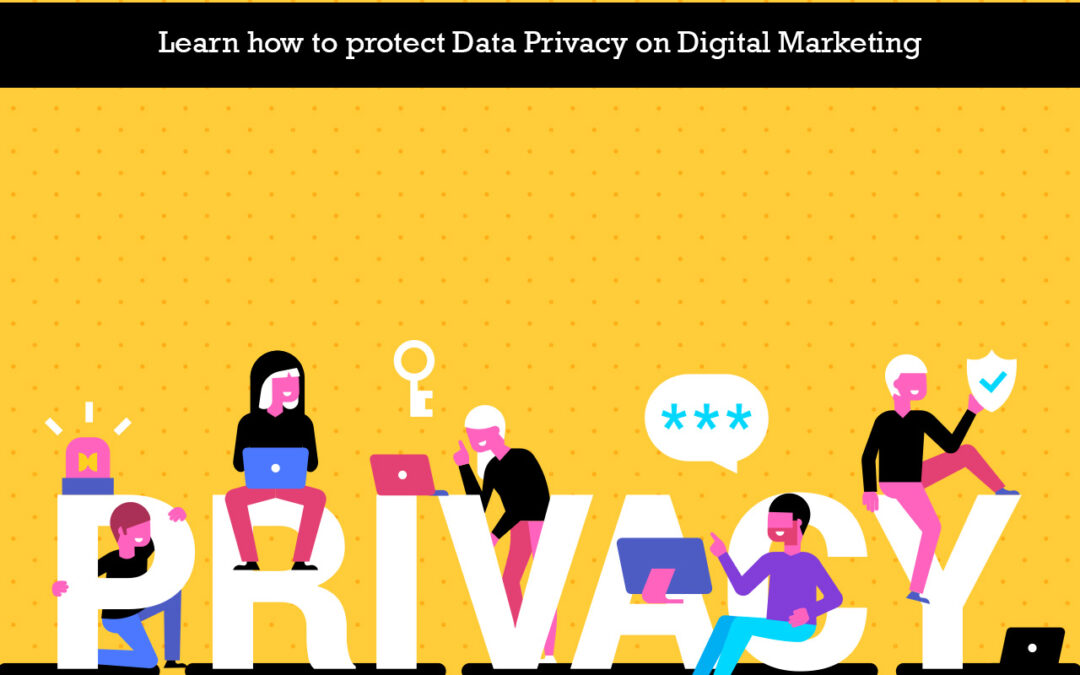How to Protect Data Privacy
Data privacy is a myth. We often hear this statement. Isn’t it? In this article, you will get to know about How to Protect Data Privacy on Digital Marketing.
Digital marketing and data privacy are directly related to each other. Consumers are often worried to share their data with digital marketing agencies as they are afraid of leakage.
But, digital marketing companies are adopting methods that assure their clients of data protection. They are using mechanisms to prove that the data of their customers is secured with them.
Customer satisfaction is one of the greatest signs of progress. Isn’t it?
You need to build trust-based relationships with your clients.
As we all know that lockdowns caused by the Covid-19 outbreak caused a tremendous increase in online sales as people rushed to purchase their preferred goods while remaining safe. This 44 percent growth in e-commerce between 2019 and 2020 generated a tsunami of data that marketers can use to target customers in the future.
Most privacy messages in today’s world come in the form of complicated notifications. Customers might not be aware of what they are agreeing to when they receive these messages, which have a clear “accept” button.
Up until recently, the principal interaction via which a client opted into monitoring was the “accept” prompt on a website. But in the data ecosystem of today, businesses will have to shoulder more accountability.
For instance, Apple’s effort for more explicit language about data permissions may discourage users from clicking “agree” without thinking. The goal of these new standards is to make it simple for customers to understand and prevent advertiser tracking.
How to Manage Data Privacy and Digital Marketing Interests?
A completely permission-based relationship should be able to withstand present and future legal requirements as well as the concerns of customers.
Companies today have a lot of access to client data, which has made data privacy a top concern for them. Regrettably, recent data breaches have cast an unflattering focus on how businesses handle their data and respect the privacy of their customers. When businesses fall short in protecting the integrity and privacy of their customers’ data, it can have a negative impact on their reputation and result in legal and financial repercussions.
It seems to sense that many businesses have been anxious recently about their GDPR requirements. Although GDPR does not apply to the markets in which your business operates, you still need to be aware of your responsibility to protect customer data. Marketing professionals have an enormous opportunity to create highly customized digital marketing campaigns by mining client data.
Data privacy has significant effects on how digital marketers create and carry out their campaigns. Always be open and honest about the purposes behind your data collection and usage decisions. Customers own the data, so treat each one with care. And at all times, act morally. Building a connection based on trust with your clients will be easier the more you can show that you’re using the data effectively.

Points to Follow
Keep in mind the following as you work to increase your efforts to protect your stakeholders’ data privacy:
- Only by openness and accountability can one earn someone’s trust. Any claim you make or deed you commit must be verifiable and observable.
- If you’re hiding something, you’re telling individuals that something about your procedures isn’t reliable. Maintain openness and responsibility at all times.
Conclusion
The topic of protecting data privacy is stale, and businesses frequently make hollow promises to make improvements.
The most effective strategy to persuade audiences of your advocacy and support for data privacy protection is to take concrete action. Be proactive and unwavering in your drive to give your clients safer online experiences.
Although most digital marketing agencies associate Google with Google Ads, it’s crucial to keep in mind that they also control Chrome (where most ads are served).
Although we typically associate Apple with the production of our laptops and phones, they also administer the world’s most visited App Store, and the rules they enforce may have an impact on the apps that display advertisements.
For instance, using an iOS app on an Apple iPhone is a common way to access Facebook and Chrome. They’ll have to follow Apple’s guidelines as a result. Additionally, a sizable chunk of the present ad distribution and measurement capabilities are impacted by Google and Facebook’s reliance on personal data for audience insights and remarketing.

